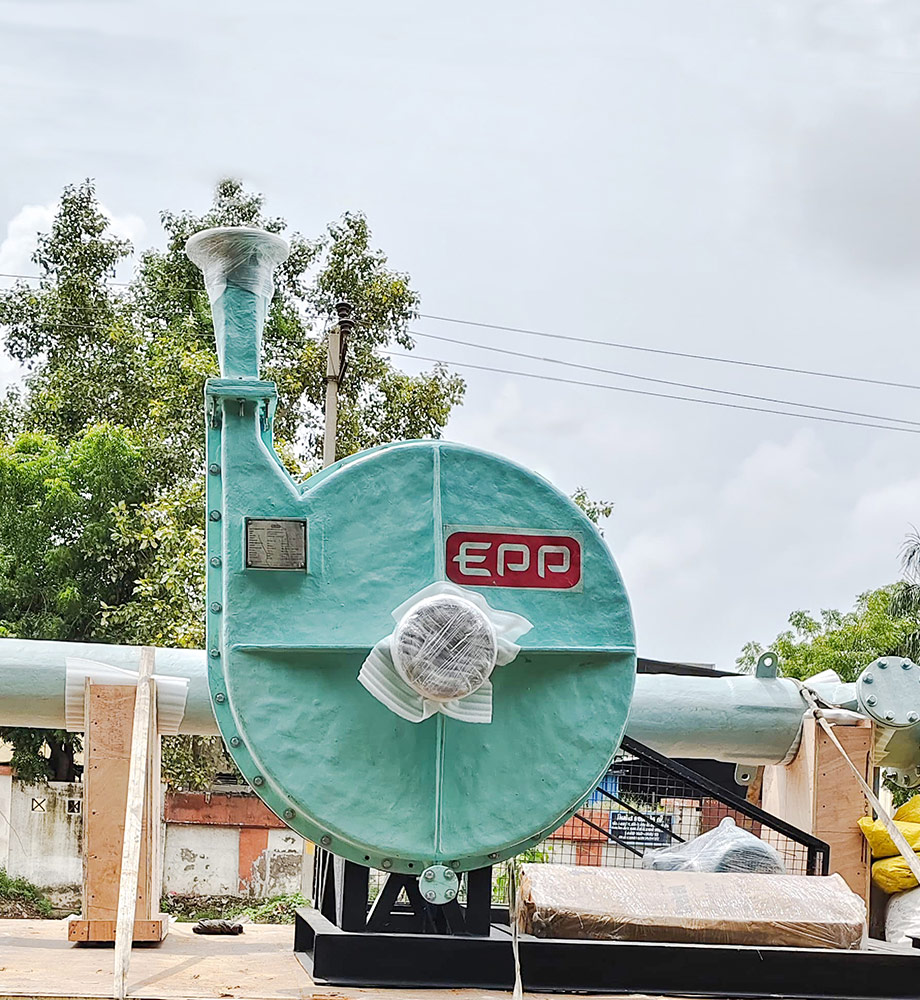Key Features
- Corrosion-Resistant Housings/Wheels: Glass fiber and thermoset resin construction prevents acid damage.
- Fire-Retardant Resin: Many FRP fans use V-0-rated resins for safety.
- Various Types: Available in axial (tube, vane-axial) or centrifugal (radial, backward-inclined) designs.
- Balanced Operation: Manufactured to minimize vibration with FRP stability.
Benefits
- Superior Corrosion Protection: FRP fans outperform stainless steel under corrosive airflow. Ideal for exhausting SO₂-laden or acid mists.
- Lightweight & Durable: Reduced weight simplifies fan support and reduces drive power. FRP blades retain shape and strength over time.
- Cost-Effective: Lower price than exotic metal fans for equivalent corrosion performance. FRP fans offer a “worthy long-term investment”.
Applications
- Induced-Draft Fans for pulling gas through wet scrubbers.
- Oxidation Air Blowers for injecting air into slurry tanks.
- Ventilation Fans for exhaust hoods or fume vents in chemical areas.
- Recirculation Fans in wet electrostatic precipitator (WESP) or absorber booster circuits.
Notably, FRP fans have been adopted in many power plants and fume-scrubber systems due to their corrosion resistance.
Technical Specifications
- Materials: Standard FRP fans use epoxy vinyl ester; premium fans may use PTFE-lined FRP for extreme service.
- Performance: Flow rates from a few thousand to >100,000 CFM; pressures up to 1.0″–2.0″ w.g. for axial, or higher for centrifugal.
- Mounting: Floor-standing or roof-mounted assemblies; optional weather protection.
Unique Selling Points
Our FRP blowers and fans leverage proprietary composite designs. For example, fans with FRP stators and FRP/graphite blades resist both abrasion and corrosion. According to industry sources, FRP fans have “a higher level of corrosion resistance than present in the individual materials”. We provide complete fan packages (motor, base, inlet/outlet transitions) ready for FGD integration.

